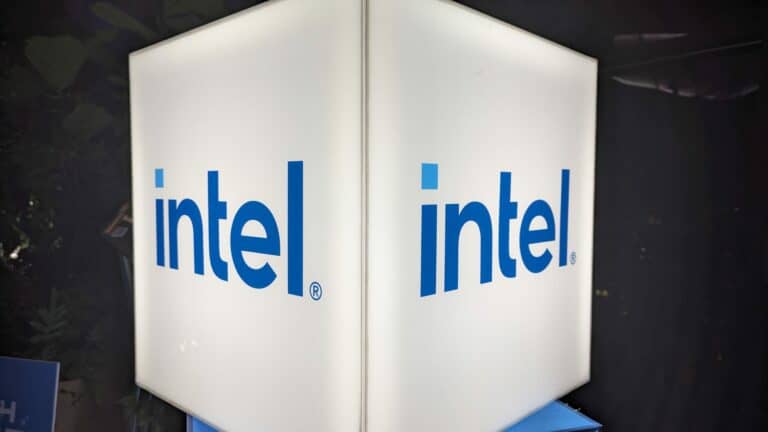Intel remains in crisis mode. Since Pat Gelsinger’s departure as CEO in December, a new U.S. administration and interim leadership at Intel have reshaped the company’s future outlook, potentially paving the way for a split. Who are the interested parties and how realistic is a takeover? And won’t this tear Intel apart?
In September, rumors suddenly surfaced that a struggling Intel might be acquired by Qualcomm. That idea ultimately proved unrealistic. Even with its stock market value plummeting to around $93 billion, Intel was not so easily swallowed. Five months later, that figure again rose above the $100 billion mark, fueled by a new wave of speculation. With President Trump now encouraging takeover discussions, the chances of a deal appear higher this time.
Intel in the bargain bin
One problem for Qualcomm was that Intel is an unwieldy company. Although the Foundry business is in the process of reaching greater autonomy, any acquisition deal would never have involved just Intel’s product division. In fact, “Chipzilla” depends on revenue from its own chips to fund the costly Foundry. Even that isn’t enough, however, and it still needs billions in federal support. Under President Joe Biden, that funding came slowly but was never in doubt. His successor, Donald Trump, is less enthusiastic about subsidizing Intel and aims to bring chip production back to U.S. soil through tariffs.
To achieve that goal, however, the private sector must play a part. Taiwan’s TSMC, by far the largest producer of advanced semiconductors, now faces the threat of steep import tariffs under Trump. While TSMC already makes chips in the U.S. and could expand its Arizona plant to avoid looming tariffs, the Trump administration reportedly wants to involve TSMC in a breakup of Intel, according to the New York Times.
Such a move could happen through a joint venture with TSMC, Broadcom, and possibly private equity firms or other chipmakers. The potential scenarios vary widely: TSMC might take over only the Foundry business (including some of ASML’s extremely expensive High-NA EUV machines), while Broadcom might target Intel’s design and marketing units.
Removal of a U.S. chip giant?
An Intel under Broadcom’s control captures the imagination. The Register naturally highlights the U.S. chip designer’s notorious reputation—Broadcom often operates much like a private equity firm, cutting costs drastically, raising prices and simplifying sales structures. For example, it transformed VMware from a diverse but confusing software package into a high-end virtualization product that only more affluent customers can afford.
What Broadcom might do with Intel is speculative, but it is poised to acquire part of the company assuming the rumored plans go ahead. This contrasts with Qualcomm, which—for context—is valued on the stock market at less than twice of Intel’s worth, making a takeover near-impossible to accomplish without outside parties. Meanwhile, TSMC would have clear plans for Intel’s chip plants, at least the ones in the US. Given these locations hold a range of permits and offer readymade infrastructure, the Taiwanese chipmaker could accelerate its capacity growth, at least in the Americas. According to unnamed sources cited by The New York Times, the possibility of acquiring Intel Foundry’s European operations is unsure.
Either way, these plans paint a picture of a divided Intel, which may even lose all autonomy. When we previously dismissed Qualcomm’s interest as unrealistic, we did so because the entire company could not simply be cut up to make a speculative deal make sense. Under Gelsinger, the prevailing belief was that combining chip manufacturing with design was the best long-term bet. Now, however, his successors are focusing on the here and now to ensure the company’s. Without Foundry, Intel would be a relatively affordable yet troubled target for outside ownership, perhaps Broadcom (or maybe even Qualcomm, after all?). Losing Intel’s Foundry would mark the end of Chipzilla as we know it, casting an uncertain shadow over its future.
Also read: Intel exceeds low expectations without a CEO
